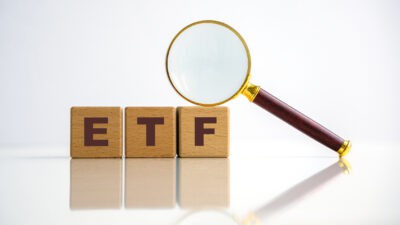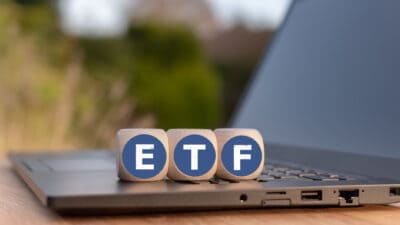I think that it makes a lot of sense to invest money into exchange-traded funds (ETFs).
ETFs allow investors to take a passive approach to investing into the share market without having to make the decisions about what shares to buy and sell – the ETF does it automatically.
An ETF is usually the type of investment that you could make and hold for many years, perhaps for the rest of your life.
They can give you good diversification with a single investment, which lowers risks.
Here are the ones I'd buy with $25,000 today:
Betashares Ftse 100 ETF (ASX:F100) – $5,000
This one is invested in the largest 100 businesses on the UK share market. In many ways the ASX is similar to the London Stock Exchange, although the UK has a few more global businesses than Australia.
Looking at the top holdings, these are the biggest 10 exposures: Astrazeneca, GlaxoSmithKline, HSBC, Diageo, British American Tobacco, BP, Rio Tinto, Unilever, Reckitt Benckiser and Royal Dutch Shell.
I like the diversification offered by the London Stock Exchange – there isn't a heavy focus on financials and materials.
The UK share market has been through a tough time in recent years due to Brexit, but I think there's good value there. Be greedy when others are fearful, as the saying goes.
When COVID-19 passes I think this ETF could pay a very attractive dividend to investors.
BetaShares Global Quality Leaders ETF (ASX: QLTY) – $15,000
This is one of my favourite ETF ideas these days. I think a focus on quality should generate good results. Indeed, this ETF has performed very well since inception in November 2018, it has produced net returns of 18.8% per annum.
Its investments come from across the world. Whilst around two thirds of the portfolio is invested in (multi-national) US shares, it's also invested in businesses in various other countries like Japan, Switzerland, France, Denmark and so on.
Businesses have to rank well on four metrics to make into the portfolio: return on equity (ROE), debt to capital, cash flow generation ability and earnings stability.
A group of businesses that do well on all of these metrics are likely to generate solid total shareholder returns.
What businesses make it into the holdings? The biggest positions are: Apple, Nvidia, Adobe, Accenture, Facebook, Intuit, Nike, Intuitive Surgical, Texas Instruments and Alphabet (Google).
I like that it's not just focused on one country, one region or one industry. Plus, you get the high-quality exposure for an annual fee of just 0.35% per annum.
BetaShares Asia Technology Tigers ETF (ASX: ASIA) – $5,000
Asia is a huge part of the global economy, I think it could be a mistake to largely ignore the whole region, which many ETFs do.
There are plenty of China risks when it comes to this ETF. Chinese businesses make up more than half of this ETF. However, I think the reward potential is higher if you focus on just the technology shares listed in Asia.
I think the Asian tech giants are the equal to technology giants in the US. Indeed, technology adoption is high in Asia and that's helping the Asian tech businesses grow at a fast pace.
These are some of the largest positions in the Asian technology ETF: Taiwan Semiconductor Manufacturing, Meituan Dianping, Alibaba, Tencent, Samsung, JD.com, Netease, Infosys, Pinduoduo and Sea.
This ETF has been a strong performer – over the past year it has returned 56% after fees, and since inception in September 2018 it has returned 27.8% per annum.
The annual management fee is 0.67% per annum, which is on the pricier end of possible ETFs, but it would cost a lot more if we invested through an active manager.
Foolish takeaway
I like each of these ETFs. I particularly like the global quality ETF – it's the type of investment that one could seemingly hold for many years and see strong returns. But I think the other two ETFs offer good income and growth prospects respectively.






